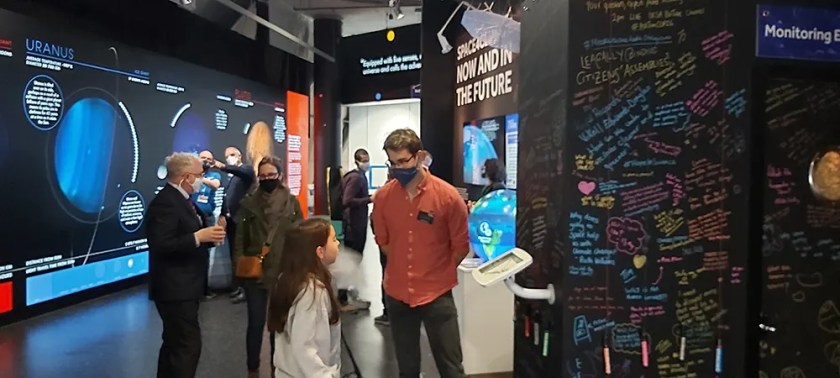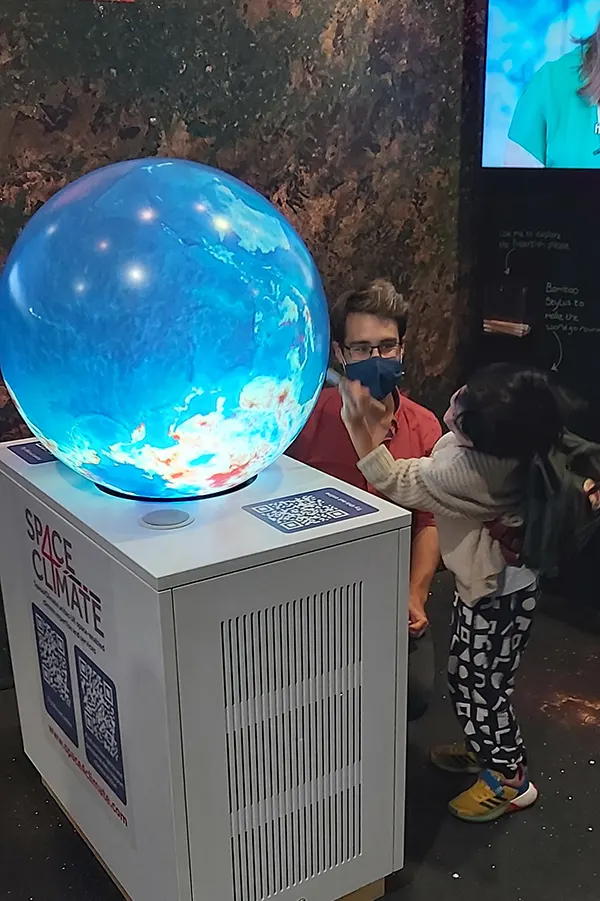Dan Hirst discusses the limitations of space and the need to innovate sustainably with a young space fan.
Dan Hirst is a Data Scientist for Ordnance Survey’s Rapid Prototyping Team. He has a lifelong passion for space and focuses on Earth observation and satellite imagery. He also loves to meditate, cook, and spend far too much on fancy kitchen utensils.
The most pressing issue of our age – the climate emergency – will affect the youngest generations to the greatest degree. Involving audiences of all ages in discussions is critical. It can also be illuminating, as I learned when I met a 12-year-old girl called Archie in the COP26 Green Zone, who taught me a valuable lesson.
I have always loved space, space travel, and Earth observation. When I see a rocket launch, I am filled with joy and a sense of the progression of science. I was incredibly lucky to attend COP26 with Space4Climate where I had an opportunity to share this passion with the public. I had a fantastic time chatting with everyone about climate change and the role space has in measuring and monitoring its effects.
Archie gave me the look of a tenured professor
Space is infinite, I thought, and so is its capability to improve the world. Then I met Archie. Despite only coming up to my waist, she looked at me with the experience of a tenured professor. She asked, “Why do we want to move factories to space if they’re just going to pollute space instead?”
What followed was a 15-minute discussion about the limitations of space and the necessity to innovate sustainably.
We covered space junk, off-world manufacturing and unethical mining practices. We worked out (together) that space could be incredibly valuable to humanity. Unfortunately, as our species often does, there is also a significant risk of making things worse.
Painstaking efforts to generate accurate data
This is a simple point, but one that is often overlooked in a culture of techno-optimism. I have dedicated my life to the possibilities of space and have given surprisingly little consideration to the industry’s limitations. This brief chat with Archie gave me a new perspective on the infinite cosmos.
I am unbelievably thankful for my time at COP26 because of the new insights it gave me. I learned more about the painstaking efforts of thousands of scientists to generate accurate data that I take for granted. I learned about the tireless grassroots campaigns to make a difference in local communities. But perhaps the most important lesson I learned, from Archie, is that our job is to not only make progress, but to make progress thoughtfully and sustainably.

